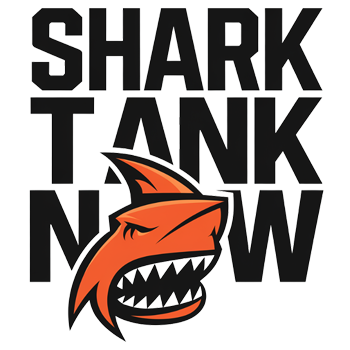When I first heard about DARTdrones, I was immediately intrigued. A company dedicated to teaching people how to fly drones safely and professionally? It was such a niche idea, but one that made perfect sense in today’s tech-driven world. Let me take you on the journey of DARTdrones—from its humble beginnings to its appearance on Shark Tank and its incredible growth afterward.
The Birth of DARTdrones
DARTdrones was founded in 2015 by Abby Speicher while she was pursuing her MBA at Babson College. The idea came to her after she noticed a glaring gap in the market: while drones were becoming increasingly popular for both recreational and commercial use, there were very few resources available to teach people how to operate them safely and effectively. With new FAA regulations requiring commercial drone pilots to obtain certification, Abby saw an opportunity to create a business that could fill this void.
Abby’s entrepreneurial spirit wasn’t new—she had started her first business at just 17 years old. With her father, Chris Speicher, serving as Chief Visionary Officer, Abby set out to build a company that would not only teach people how to fly drones but also help them pass the FAA’s Part 107 Remote Pilot Certification test.
By 2017, DARTdrones had already made a name for itself as the only national drone training company in the U.S., offering courses in multiple cities. But Abby wanted to take things to the next level, which led her to pitch her business on Shark Tank.
The Shark Tank Pitch
Abby Speicher appeared on Shark Tank during Season 8, Episode 18, which aired on February 24, 2017. She entered the tank seeking $300,000 in exchange for 10% equity in DARTdrones. Her pitch was engaging and memorable right from the start. She opened with a video showcasing common drone mishaps—crashes into walls and even people—to emphasize the need for proper training.
Abby explained that DARTdrones offered hands-on training for hobbyists and professionals alike, with courses ranging from basic flight skills to advanced certifications. She revealed that the company had already grossed $520,000 in sales over 18 months and was on track to earn between $900,000 and $1.2 million the following year. However, she admitted that the business wasn’t yet profitable because all revenue was being reinvested into curriculum development.
The pitch had its lighter moments too. Robert Herjavec attempted to fly a drone during the presentation but struggled initially before managing a somewhat wobbly landing. This added a touch of humor and demonstrated just how valuable DARTdrones’ training could be.
The sharks were impressed by Abby’s vision and the potential of her business. Kevin O’Leary started the bidding with an offer of $300,000 for 15% equity. Mark Cuban quickly followed with an offer of $300,000 for 10%, which Abby accepted on the spot.
What Happened Next?
Although Abby struck a deal with Mark Cuban during the episode, it later emerged that the deal did not close after filming. Despite this setback, DARTdrones leveraged its Shark Tank exposure to achieve remarkable growth.
Here’s a detailed breakdown of DARTdrones’ journey:
| Category | Details |
|---|---|
| Product Name | DARTdrones |
| Founders | Abby Speicher |
| Season & Episode | Season 8, Episode 18 |
| Ask (Investment & Equity) | $300,000 for 10% equity |
| Final Deal | $300,000 for 10% equity (deal with Mark Cuban did not close) |
| Shark(s) Involved | Mark Cuban |
| Memorable Episode Moments | Robert Herjavec’s drone demo struggles; Abby’s confident pitch |
| Current Net Worth | Estimated at over $5 million (2025) |
| Current Business Status | Active |
| Revenue Since Shark Tank | Over $5 million annually by 2024 |
| Social Media Presence | Active on Facebook; less active on other platforms |
| Key Achievements | Partnerships with NASA, FBI; Forbes’ 30 Under 30 recognition for Abby |
Post-Shark Tank Growth
DARTdrones didn’t just survive after Shark Tank—it thrived. Here are some of the key milestones it achieved:
1. Curriculum Expansion
Initially focused on FAA Part 107 test prep courses, DARTdrones expanded its offerings significantly after Shark Tank. The company introduced over 20 specialized courses tailored to industries like real estate, public safety, infrastructure inspection, and aerial photography.
2. Geographic Reach
From operating in just a handful of cities at the time of its pitch, DARTdrones grew to offer classes in over 40 cities across the United States by 2024. It also began offering online courses for those unable to attend in-person training.
3. Corporate Partnerships
DARTdrones formed partnerships with major organizations like NASA, Boeing, and law enforcement agencies across the country. These collaborations boosted its credibility and opened doors to new markets.
4. Public Safety Initiatives
The company launched a Public Safety Grant program that provided free drone training worth over $500,000 to police and fire departments. This initiative underscored DARTdrones’ commitment to community service.
5. Recognition
In 2018, Abby Speicher was named one of Forbes’ “30 Under 30” in enterprise technology—a testament to her leadership and innovation.
Current Status (January 2025)
Today, DARTdrones is widely recognized as a leader in drone pilot training:
- Annual Revenue: The company generates over $5 million annually.
- Market Reach: It operates across more than 25 cities in the U.S., with plans for international expansion.
- Valuation: While exact figures are unavailable, industry estimates place its net worth at over $5 million.
- Business Model: In addition to individual courses, DARTdrones now licenses its curriculum to schools and colleges as part of STEM education programs.
Despite its success, DARTdrones has faced challenges too. Managing logistics for in-person classes across multiple cities remains complex. However, its pivot toward online training has helped alleviate some of these issues.
Lessons from DARTdrones’ Journey
As I reflect on DARTdrones’ story, several lessons stand out:
- Identify Emerging Needs: Abby Speicher spotted an opportunity in an emerging market and acted quickly to fill the gap.
- Leverage Exposure: Even though her deal with Mark Cuban didn’t close, Abby used Shark Tank as a platform to boost her brand.
- Adaptability: By expanding into online courses and licensing agreements, DARTdrones adapted to changing market demands.
- Community Focus: Initiatives like the Public Safety Grant program not only helped communities but also enhanced DARTdrones’ reputation.
Looking Ahead
As drones continue to revolutionize industries ranging from logistics to emergency services, companies like DARTdrones are poised for sustained growth. With its comprehensive curriculum and strong leadership team, I believe DARTdrones will remain at the forefront of this exciting industry.
For aspiring entrepreneurs reading this: take inspiration from Abby Speicher’s journey. Her story is proof that with vision, resilience, and adaptability, you can turn even the most niche idea into a thriving business!

